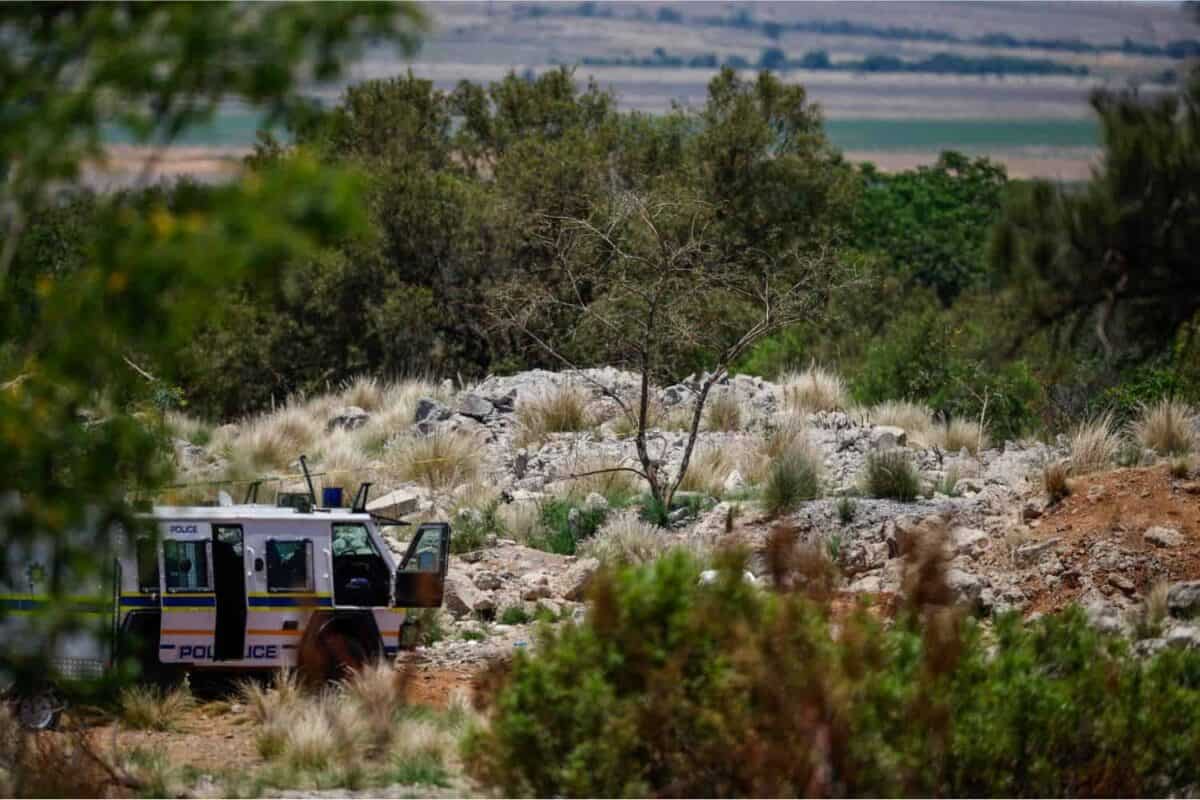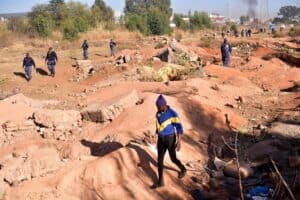There are concerns that the SAHRC’s probe into the impact of illegal mining will deliver justice for affected communities.

The Mining Affected Communities United in Action (Macua) has welcomed the commencement of the South African Human Rights Commission’s (SAHRC) national inquiry into how illegal mining affects the rights of communities.
However, it expressed several reservations. The inquiry is investigating how illegal mining impacts communities.
Inquiry to examine policing
It will also look at the police fight against illegal mining, Operation Vala Umgodi.
The investigation was triggered by last year’s events when more than 80 illegal miners, who were trapped underground in Buffelsfontein Gold Mine in Stilfontein in North West, died after the police reportedly denied them water and food for three months.
The first session of the inquiry was held yesterday at Philemon Masinga Sports Complex in Stilfontein, Khuma, North West, while the second session will take place at Sentinel House in Parktown today and tomorrow.
“The national inquiry [will look] into the policy framework around artisanal mining, the impact of artisanal mining on the human rights of surrounding communities and the scope and tactics employed in Operation Vala Umgodi,” the SAHRC said in a statement.
“The inquiry will build on the 2015 and 2016 artisanal mining reports of the commission and seeks to foster sustainable solutions prioritising human rights, community well-being and environmental stewardship.”
ALSO READ: Illegal mining in Limpopo ‘spiralling out of control’
‘A shield for the state’
Macua national coordinator Sabelo Mnguni said the inquiry was designed to protect mining companies and authorities.
“We note the eventual announcement of the SAHRC’s national inquiry into artisanal mining, the Stilfontein crisis and Operation Vala Umgodi.
While we welcome that the commission has finally moved, this step comes after a year of silence and delay.
“The process as framed risks becoming a shield for the state, rather than a platform for truth and accountability,” Mnguni said.
Concerns over past failures of accountability
For years, communities have looked to the SAHRC to protect their rights ever since the 2015 national hearings on artisanal mining and the 2018 hearings on mining-affected communities, he said.
“Yet more than seven years later, the commission has failed to hold the state to account for its ongoing abuses of mining-affected communities.
ALSO READ: More woes for Malema as SAHRC to pursue sanctions against EFF leader
“Instead of securing redress, the commission has allowed recommendations to be ignored, abuses to continue and corporate impunity to deepen.
“Now, rather than correcting that failure, the commission risks compounding it by crafting this inquiry as a shield for the state rather than a pursuit of justice and protection of human rights,” said Mnguni.
Call for justice after Stilfontein tragedy
He called on the SAHRC to urgently revise both its programmes to guarantee sufficient time for communities to present evidence and ensure a platform to hold those responsible for wrongdoing accountable.
“We need the identification of those responsible for the Stilfontein massacre and referral for accountability.”
Recently, mining-affected communities throughout the country have complained about criminal activities reportedly committed by the illegal miners.
They also accused the zama zamas of polluting water and damaging the environment.
NOW READ: SAHRC denies calling for ‘policing’ of podcasts in White Paper submission
Support Local Journalism
Add The Citizen as a Preferred Source on Google and follow us on Google News to see more of our trusted reporting in Google News and Top Stories.








